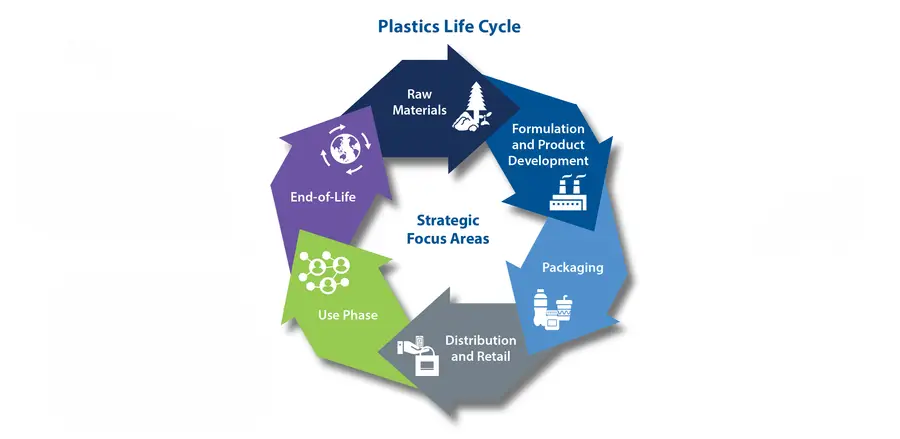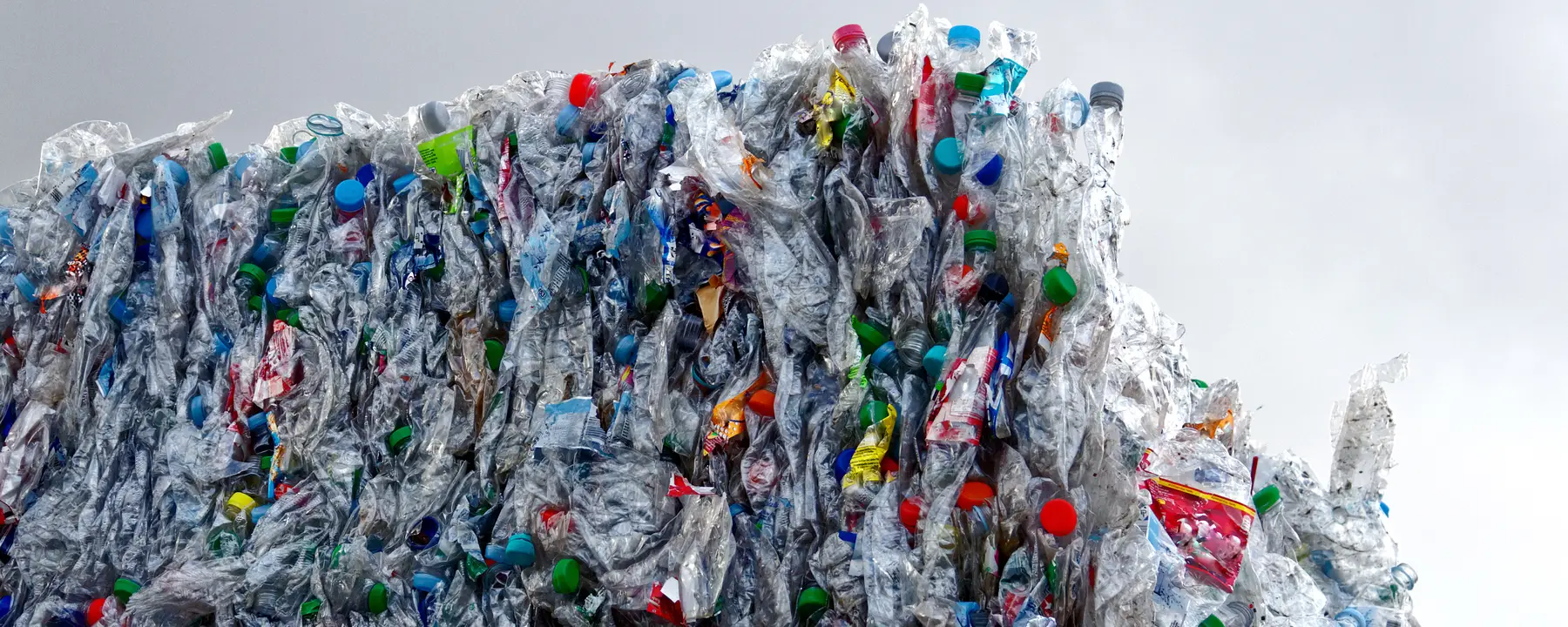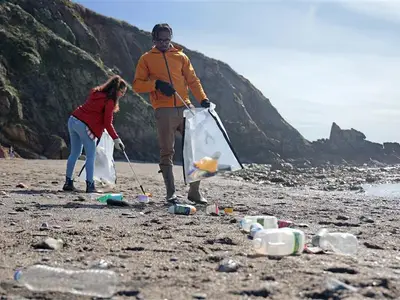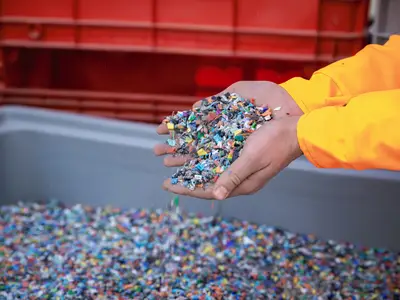From Macro to Micro: Tackling Plastic Pollution Through Circular, Science-Driven Solutions
Plastic pollution is a complex, system-wide issue that spans from macro, or visible waste, to invisible microplastics and nanoplastics, impacting nearly every aspect of human life—the air we breathe, the food we eat, and the water we drink. As plastics accumulate in landfills, waterways, and oceans, they gradually break apart into smaller fragments, creating microplastics (plastics smaller than 5 mm) and nanoplastics (plastics smaller than 1000 nm) and releasing chemicals that persist in the environment and enter food, air, and water systems.
Addressing plastic pollution requires change that spans the entire plastics life cycle, from material design and responsible production to waste management, recovery, and reuse. Each stage of the plastics life cycle is interconnected and by taking a systems approach, RTI helps clients identify leverage points, mitigate risks, and implement effective, science-based solutions for a more circular and sustainable plastics economy.

RTI Services for Addressing Plastic Pollution
We support the transition from linear to circular plastics systems, offering science-driven, life cycle-based solutions that address macroplastic to microplastic pollution. Our work spans the following service areas that enable safer design, smarter use, effective recovery, and system-wide innovation.
Advance safer, more sustainable materials and product design
- Identification and evaluation of circular feedstocks, including bio-based and biodegradable alternatives
- Safer chemical substitution and avoidance of regrettable replacements
- Packaging redesign and product reformulation aligned with circular principles
- Decision-support modeling and life cycle assessments to determine environmental and health trade-offs
- Laboratory testing of products for impurities or chemicals of concern
Promote responsible consumption and empower informed decision-making:
- Assessment of polymer degradation and microplastic release during use
- Life cycle exposure modeling for food, air, and water intake
- Behavior change strategies to extend product life and reduce leakage
- Consumer insight research, labeling strategies, and communication tools
- Third-party, independent validation of product claims by using objective science-based methodologies
Design systems that recover value and prevent environmental leakage:
- Development of circular end-of-life strategies: reuse, recycling, and redesign
- Pilot implementation of advanced recycling technologies and evaluation of microplastics in end-of-life pathways (e.g., landfills, recycling, compost, etc.)
- Implementation of microplastic capture solutions (e.g., laundry filters)
- Public–private partnership models to build scalable recovery infrastructure
Generate the data needed to track circularity and mitigate risk:
- Advanced detection of microplastics and nanoplastics in environmental and biological systems
- Customized plastic repository of micro and nanomaterials to support research and regulatory alignment
- Toxicology studies under real-world conditions
- Occupational and community exposure assessments across the value chain
Support evidence-based policy design that drives circular outcomes:
- Global horizon scanning of plastic and microplastic regulations
- Policy and regulatory strategy aligned with circular economy goals
- Economic analysis of circular interventions and implementation risks
- Multi-stakeholder engagement to co-create practical, scalable frameworks
Catalyze high-impact solutions and partnerships for a circular future:
- Landscape mapping of circular technologies and business models
- Innovation challenges, pilots, and accelerators
- Strategic partnerships with startups, research institutions, and corporations
- Alignment with global treaty timelines and policy milestones to maximize uptake and impact

















